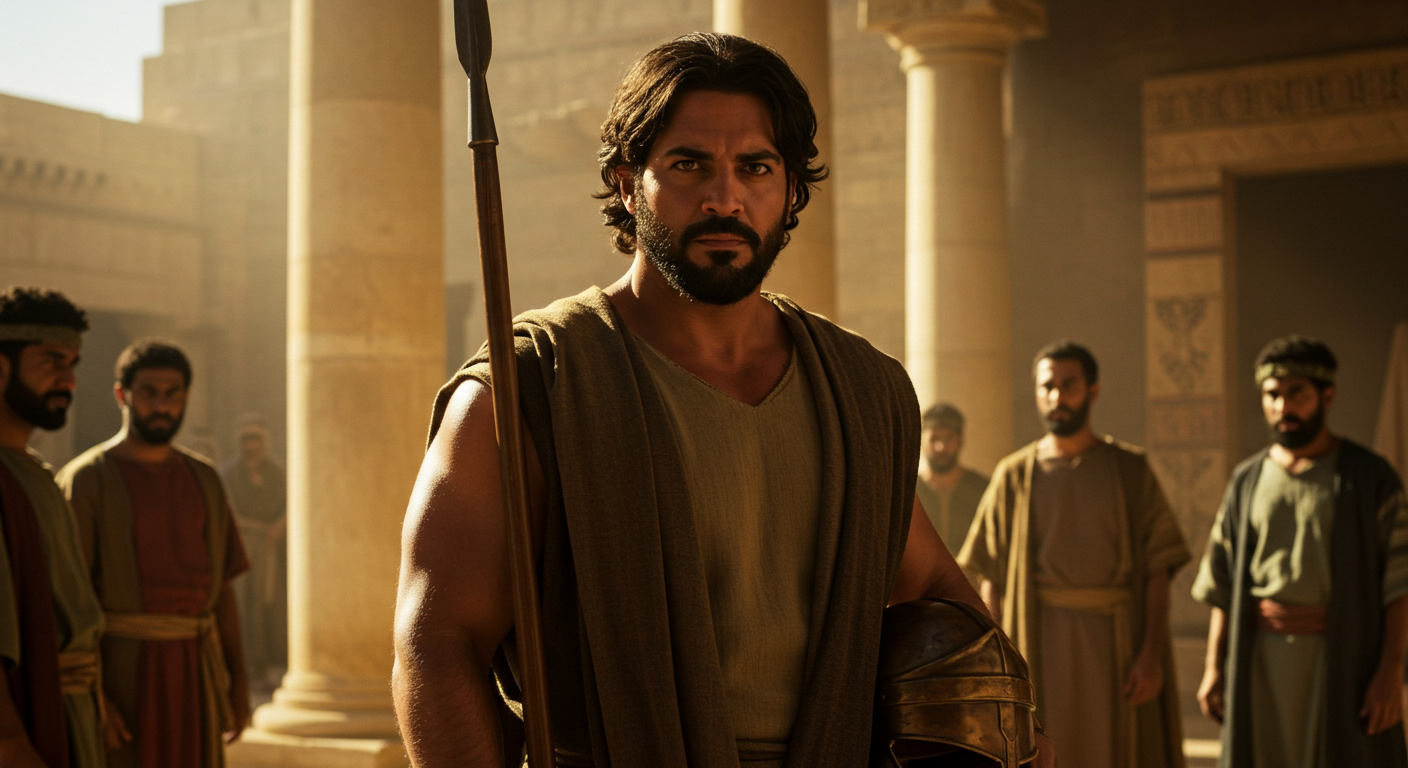The Role of Eliab, David’s Brother, in His Journey to Facing Goliath
Eliab may not be as frequently discussed as his younger brother, David, in biblical narratives, but his presence is undeniably significant in the unfolding drama of David’s life, particularly regarding the iconic showdown with Goliath. Though minor, Eliab’s role offers profound insights into familial dynamics, personal insecurity, and the expectations of leadership. By revisiting Eliab’s story, you’ll discover how even supporting characters in biblical narratives provide valuable lessons applicable to our modern lives.

Introduction to Eliab
Eliab was the eldest son of Jesse and the eldest brother of David. In the biblical context, being the firstborn son was often associated with privilege, authority, and responsibility. However, Eliab’s most recognizable moment in the scriptures wasn’t marked by heroics or spiritual enlightenment but by a somewhat petty confrontation with David. Despite this, Eliab remains a shadowy yet intriguing character whose interaction with David carries weight in the grand narrative of David’s ascendance to leadership and eventual kingship.
Eliab’s Biblical Story (1 Samuel 17:13-28)
In the atmospheric tension-filled story of David and Goliath, Eliab makes his most memorable appearance. As Saul’s armies lined up against the Philistines, Eliab, with two of his brothers, was recruited into the army due to their seemingly impressive exterior strength 1 Samuel 17:13.
When David arrives at the battlefield, charged with the task of bringing provisions to his brothers, he witnesses Goliath’s challenge and is filled with a zealous desire to defend his people and his God. Yet, when David expresses his willingness to face the intimidating giant, Eliab reacts not with encouragement but with scorn and anger 1 Samuel 17:28. He accuses David of neglecting his responsibilities at home and belittles him for taking an interest in the combat. Whether this reaction stems from genuine concern for David’s safety, a sense of rivalry, or a brotherly attempt to keep him in line, Eliab’s irritation is palpable.
Lessons from Eliab’s Life
Eliab, though briefly mentioned, offers several important lessons that resonate through centuries.
Firstly, Eliab’s story highlights the enduring struggle with jealousy and insecurity. As the eldest, he expected to be the natural leader but found himself overshadowed by his younger brother’s talents and divine favor. This sense of overshadowing can lead to strained relationships not just among siblings but also in workplaces and communities when unaddressed.
Secondly, his interaction with David reminds us of the importance of believing in others’ potential. Eliab’s dismissive attitude illustrates how easy it is to underestimate those around us, sometimes blinded by our biases or experiences.
Lastly, there’s a cautionary lesson in Eliab’s reaction that teaches us about the importance of openness to change. Eliab represents the older generation resistant to new ways or ideas, illustrating the resistance one might have to unexpected leadership or innovation even when it’s divinely appointed.
Connection to Today’s World
As you reflect on Eliab’s story and its implications, it’s surprising how much it mirrors interpersonal relationships and societal expectations today. In any setting—be it career-oriented, familial, or community-based—individuals often face disputes, assumptions, and competitive spirit akin to that seen between Eliab and David.
In workplaces, for instance, one might encounter a mentor or senior colleague who struggles to embrace the fresh perspectives introduced by younger team members, mirroring Eliab’s initial snub of David’s ambitions. Similarly, siblings can often find themselves in competitive scenarios, each stepping on the other’s toes or achievements, driven by inherent expectations or past experiences.
Eliab’s story encourages modern audiences to welcome new ideas, embrace each other’s potential, and acknowledge that sometimes, greatness and courage can emerge from the most unexpected quarters.

Key Bible Verse
“Eliab, David’s oldest brother, heard him speaking with the men; he burned with anger at him and asked, ‘Why have you come down here? And with whom did you leave those few sheep in the wilderness? I know how conceited you are and how wicked your heart is; you came down only to watch the battle.’” – 1 Samuel 17:28
This verse speaks volumes about Eliab’s misjudgment of David. It is a powerful reminder of the human tendency to let prejudices cloud perceptions. Eliab underestimated David’s purpose and potential, representing a great lesson on recognizing genuine intent and courage.
Thought-Provoking Question
Have you ever felt like an Eliab, standing in the shadow of someone else’s accomplishments, or like a David, pushing through discouragement to pursue your calling? How might you embrace such dynamics positively in your life?
Historical/Cultural Context
The cultural landscape of Eliab’s time significantly influenced the familial and social dynamics experienced within his narrative. Eldest siblings often held quasi-parental roles with authority, privileging them but also burdening them with expectations. Eliab’s reaction to David could partly be seen as a manifestation of societal norms where the elder’s wisdom took precedence, making room for conflict when overshadowed by youthful audacity.
Comparison with Other Characters
Eliab’s story offers interesting parallels with that of Esau, another eldest brother who saw his birthright snatched by a younger sibling. Just as Eliab witnessed David’s rise to prominence, Esau watched Jacob receive blessings he thought his due. Both characters offer illustrations of what it means to wrestle with changing fortunes and divine intervention.
Prayer
Dear God, guide me in seeing the potential in both myself and others, even when it’s not immediately apparent. Help me to be open to change and to appreciate the gifts others bring into my life. May I not let jealousy or insecurity cloud my relationships or judgment. Amen.







